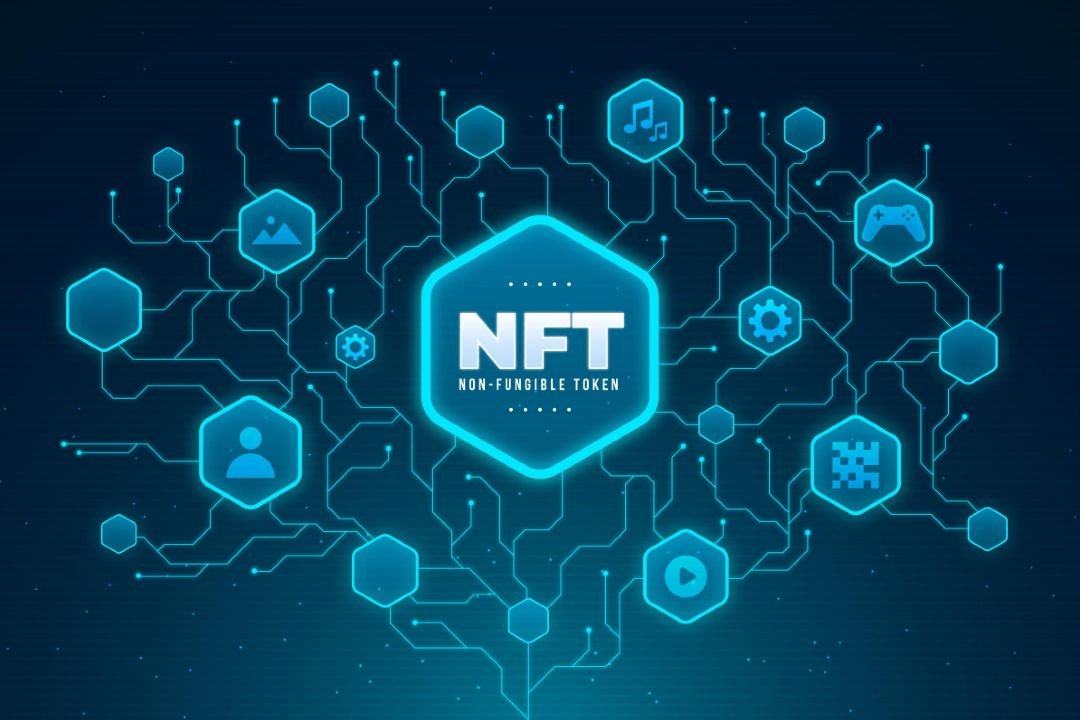NFTs:The Future of Ownership
The Importance of NFTs: Revolutionizing Digital Ownership
In the rapidly evolving landscape of digital assets, one term has been making waves: NFTs, or non-fungible tokens. These unique digital tokens have garnered immense attention, reshaping how we perceive ownership and value in the digital realm. Let’s delve into the significance of NFTs and explore why they are more than just a passing trend.
1. Introduction to NFTs
Definition of NFTs
NFTs, or non-fungible tokens, are digital assets that represent ownership or proof of the authenticity of a unique item or piece of content using blockchain technology. Unlike cryptocurrencies such as Bitcoin or Ethereum, which are interchangeable and mutually interchangeable, NFTs are indivisible and unique, making each one distinct from the other.
Brief History of NFTs
Although NFTs have gained significant traction in recent years, their origins can be traced back to as early as 2012, when the concept was first introduced with the launch of Colored Coins on the Bitcoin blockchain. However, it wasn’t until the emergence of Ethereum and its smart contract capabilities that NFTs truly flourished, enabling creators to tokenize digital assets in a more accessible and efficient manner.
2. Understanding the Importance of NFTs
Unique Digital Ownership
One of the most compelling aspects of NFTs is their ability to confer true ownership of digital assets. In the past, digital content could be easily replicated and shared without regard for intellectual property rights. NFTs change this paradigm by providing a secure and transparent way to prove ownership of digital assets, whether it be artwork, music, videos, or virtual real estate.
Revolutionizing Digital Art and Collectibles
NFTs have ushered in a new era for digital artists and creators by offering a platform to monetize their work and establish a direct connection with their audience. Through NFT marketplaces, artists can tokenize their creations, allowing collectors to purchase and own exclusive digital art pieces. This has opened up unprecedented opportunities for artists to thrive in the digital age.
Empowering Creators and Artists
NFTs have democratized the creative industry by removing traditional barriers to entry and enabling artists to directly monetize their work without the need for intermediaries. This empowerment extends beyond traditional art forms, encompassing various digital mediums such as virtual reality experiences, gaming assets, and even memes. NFTs provide creators with a means to assert control over their intellectual property and receive fair compensation for their contributions.
3. NFTs in Various Industries
Art and Collectibles
The art world has been particularly receptive to the potential of NFTs, with several high-profile sales garnering widespread attention. From digital artworks selling for millions of dollars to iconic memes being tokenized as collectibles, NFTs have revolutionized how we perceive and consume art in the digital age.
Gaming and Virtual Assets
NFTs have also found significant applications in the gaming industry, where they enable players to truly own and trade in-game assets. Virtual land, character skins, and rare items can all be tokenized as NFTs, creating a thriving economy within virtual worlds.
Real Estate and Ownership
Beyond the digital realm, NFTs hold promise for revolutionizing real estate transactions by streamlining the process of buying, selling, and verifying property ownership. With NFTs, property deeds and land titles can be securely stored on the blockchain, reducing the risk of fraud and ensuring immutable records.
4. Challenges and Criticisms
Environmental Concerns
One of the primary criticisms leveled against NFTs is their environmental impact, particularly in terms of energy consumption. The process of minting and trading NFTs often requires significant computational power, leading to concerns about carbon emissions and sustainability.
Legal and Copyright Issues
The decentralized nature of blockchain technology presents challenges in terms of legal frameworks and intellectual property rights. The ownership and authenticity of NFTs can sometimes be disputed, leading to legal disputes and copyright infringement issues.
Market Volatility and Speculation
Like any emerging technology, the NFT market is prone to volatility and speculation. While some NFTs fetch exorbitant prices, others may struggle to find buyers, leading to concerns about market manipulation and inflated valuations.
Explore NFT’s Here : The Verge
5. Future of NFTs
Integration into Mainstream Industries
Despite the challenges and criticisms, the future of NFTs looks promising, with increasing integration into mainstream industries such as finance, entertainment, and education. As awareness and adoption grow, NFTs are poised to become a ubiquitous aspect of the digital economy.
Potential for Innovation and Growth
The versatility of NFTs opens up a world of possibilities for innovation and creativity. From tokenizing intellectual property rights to creating decentralized autonomous organizations (DAOs), NFTs have the potential to reshape entire industries and unlock new forms of value creation.
Conclusion
In conclusion, NFTs represent a paradigm shift in how we perceive and interact with digital assets. By providing a secure and transparent way to prove ownership and authenticity, NFTs empower creators, revolutionize industries, and redefine the concept of value in the digital age. While challenges and criticisms remain, the potential for innovation and growth in the NFT space is undeniable, heralding a new era of digital ownership and creativity.
Read More About Crypto Currency : Sprout Write





obviously like your web-site but you need to test the spelling on quite a few of your posts. Several of them are rife with spelling problems and I to find it very troublesome to inform the reality on the other hand I’ll certainly come back again.